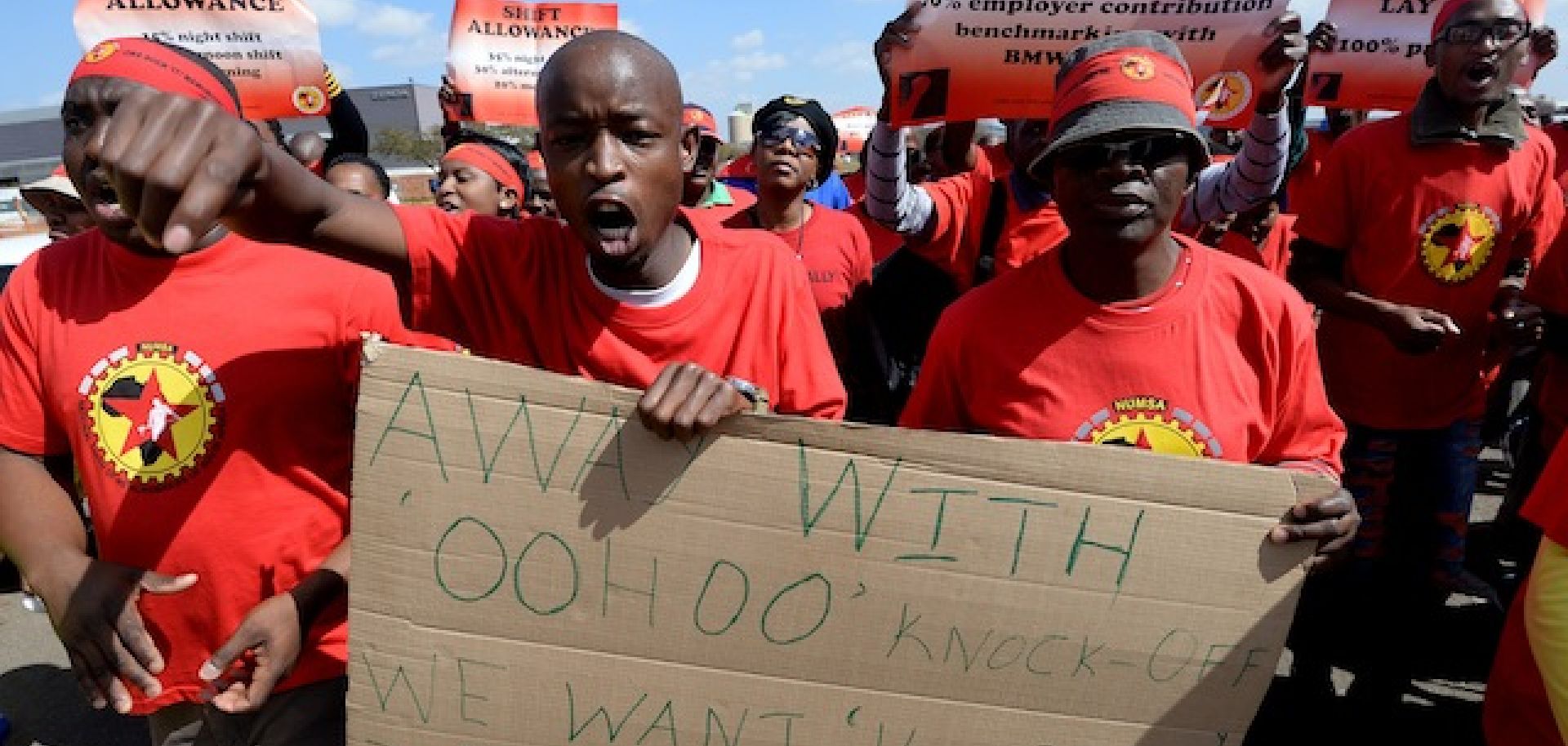ASSESSMENTS
In South Africa, Labor Strikes Threaten the Economy
Aug 23, 2013 | 10:03 GMT

(ALEXANDER JOE/AFP/Getty Images)
Summary
Some of South Africa's labor unions are making the country's manufacturing and mining sectors less competitive. Unions nearly always strike when their workers' contracts expire in the winter months, informally called the strike season, during which they negotiate with their companies to secure higher wages or other forms of compensation. This year is no exception. Most recently, the National Union of Mineworkers, one of the country's largest unions, announced Aug. 22 that 90,000 construction workers would go on strike beginning Aug. 26. Construction workers will join those in the automotive and mining industries that have gone on strike or are expected to strike soon.
Consequently, these industries are facing the brunt of the country's strike season. And while 2013's season is much less violent than the previous year's, the outcome will be more or less the same as years past: higher wages for workers. Of course, higher wages are good for the workers, but coupled with increased energy prices, they have made it more difficult for some companies to compete, even in Africa's largest economy.
Subscribe Now
SubscribeAlready have an account?
